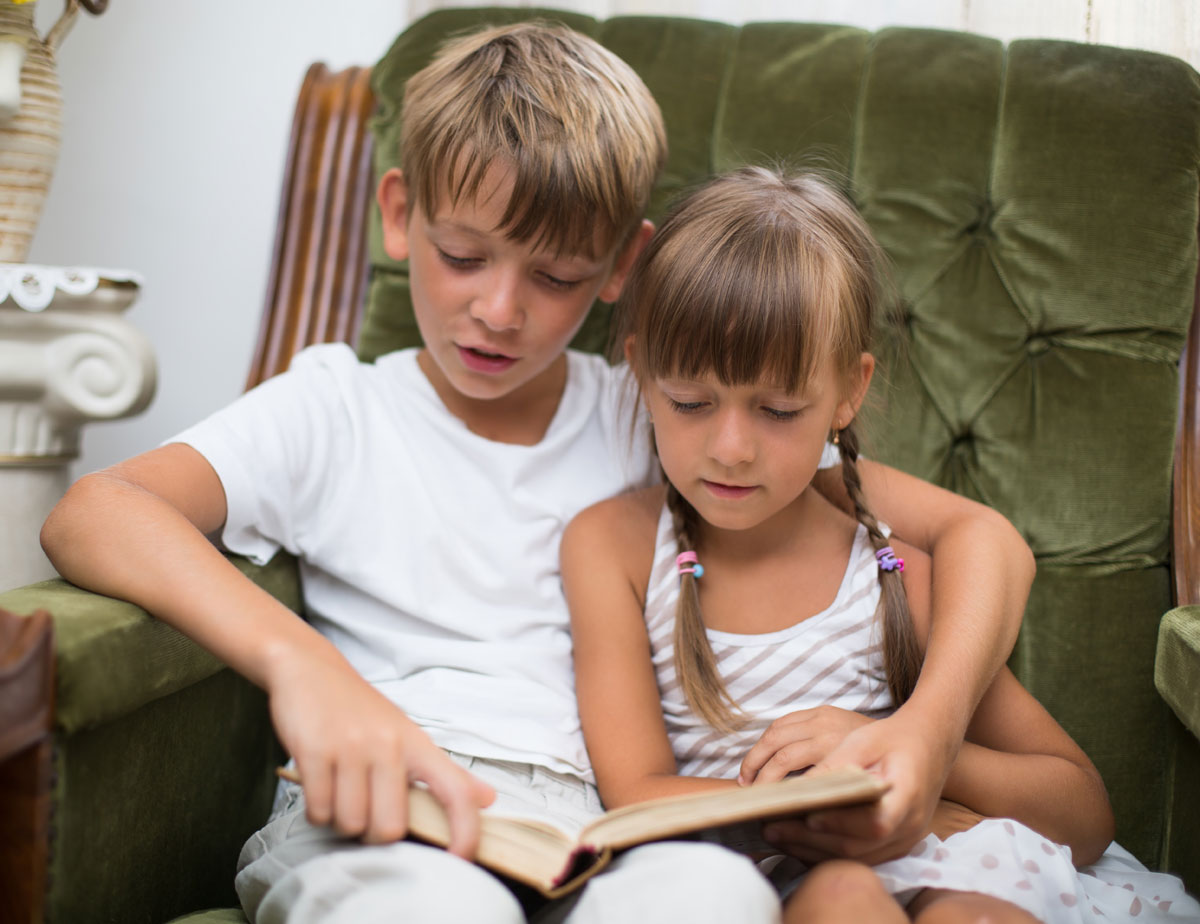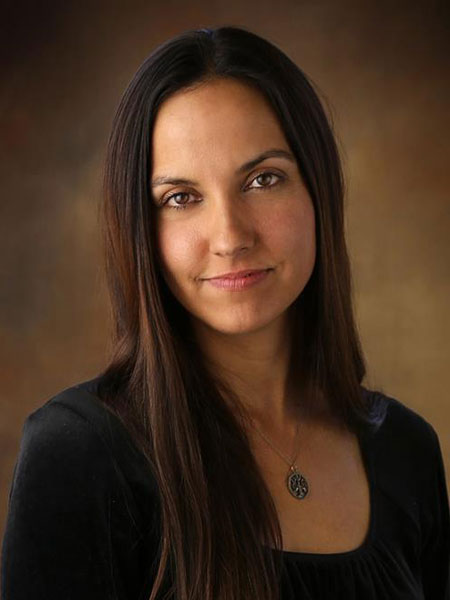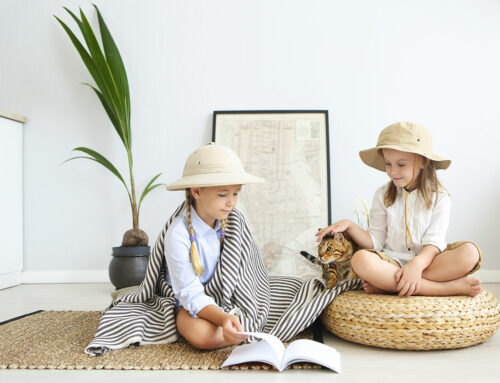
If they’re not reading books in the backseat of the car, my children are enjoying the view outside the window, relating memories, making observations, asking questions, and losing themselves in daydreams. One fall afternoon, my seven-year-old noticed a Home Depot on our way to the park, and he asked if the word depot was French. I smiled to myself, told him that his assumption was correct, and then praised his deduction skills.
This was hardly the first time my son had made this kind of observation, and while I was proud of him, I wasn’t surprised.
For two years now, he has been a student of the classical education method, and his mind has been trained to work in a very special way.
My son has never studied French, but he regularly encounters numerous foreign languages through our history and literature lessons and books. He’s no stranger to Anglo-Saxon, Japanese, German, and Spanish and their linguistic variations. He’s absorbed their appearance, intonations, and pronunciations, and he’s discovered their basic linguistic rules all on his own. With remarkable precision, my son can look at foreign words, especially foreign surnames, and identify their etymology.
The classical education method trained him to do this – to pursue knowledge and to pursue it as a pleasurable activity.
Classical education organizes learning into a three-part process, which supports the maturing capacity of the child’s mind: absorption of knowledge, organization of knowledge, and expression of knowledge.
As a home educator, I chose this method, not because it will get my children into college, help them acquire a job, or earn them accolades from friends and family, but because knowledge – in and of itself – is valuable, good, and beautiful. The attitude that one should pursue knowledge for its own sake developed during the Classical Period of Western culture – hence the name classical education. The pursuit of knowledge, said the Greek philosophers, leads to the flourishing of the human being.
To Aristotle, in particular, it is an intellectual virtue, and it is as vital to the mind as food is to the body.
In our classroom of three, my children and I privately celebrate our discoveries and achievements. At the end of our day, we feel perfectly delighted after working through Latin vocabulary, mapping ancient Mesopotamian empires, writing a chemistry report, diagramming sentences, and reciting, from memory, a Robert Louis Stevenson poem.
For achievement to happen, however, a child’s mind must be active.
It must be engaged in the activity at hand, executing all the difficult work that needs to be done. Because classical education is language-based, it effectively trains the child’s mind to become active. Reading, listening, and writing are the core components of language, so the child spends most of his time performing these exercises. He rarely suffers from boredom and lack of interest because his mind is always in a position of engagement.
On the other hand, image-based learning, which supplies information through pictures, videos, and screens, keeps the child’s mind in an inert, passive state. Unfortunately, because the mind is simply a bystander and at the mercy of the image in front of it, it is frequently susceptible to boredom and apathy when the image loses its appeal or is removed.
Since they were babies, my children have been inundated with words and language. I controlled the presence of television, computer, and smartphone screens, and I made books plentiful around the house. My seven-year-old and five-year-old read at a sixth and fourth-grade level, respectively. They read every day, for hours a day, and they engage with what they read by asking questions, sharing what they’ve read with others, and writing their own story versions and sequels. This year, my son’s reading comprehension has profoundly increased, as he is able to read an eight-page history chapter and summarize it in a written paragraph (with precision and articulation) without my assistance.
Known for its rigorous and challenging nature, classical education requires the child to meet a higher standard.
It requires the child to commit, focus, and follow through.
Through this process, the child engages in a variety of mental exercises such as asking questions, showing patience when answers don’t come readily, recognizing mistakes, and finding satisfaction in practice and revision. This process requires discipline and control of one’s baser inclinations.
The child must learn to control his feelings and his immediate wants. The child must learn to control his desire to quit, succumb to laziness and failure, or make excuses.
My son resisted some discipline in his first-grade year, but by the second grade, he had acquired new mental habits. I persisted, gently encouraging him to try again, to do better, and to do more. Now he completes his math worksheets on his own; he erases his messy handwriting when I ask him to; he re-reads a passage that he can’t quite comprehend. At 8:30 a.m., my children have their books and materials ready for the day’s lessons, and they’ve usually started working before I enter the room.
One of the most valuable benefits of a classical education is that it is knowledge-centered, not child-centered. It requires the child to set aside his ego, humble himself, and approach his studies from an objective position. It helps him recognize that the world does not revolve around him and that there is a sphere of events, people, places, ideas, concepts, and phenomena that existed before him and that will exist after him.
Unlike other methods that focus on the child’s individual wants, interests, and abilities, the classical education method focuses on the academic subjects and knowledge at hand.
Over the past two years, my son has created a Venn diagram, read an adaptation of Beowulf, studied warlords of 17th-century Japan, and observed a meteor shower in order to gain knowledge. And he gained all this knowledge for its own sake.
A classical education was my gift to my children, and in a very short time, I have witnessed its rewards. Knowledge has become the sustenance of a five- and seven-year-old who will seek it out their entire life, whether it’s in the pages of a book or through the window of a car.
Angela McCain
After teaching college for nearly two decades, Angela McCain turned her back on failing mainstream education to focus her passions elsewhere – on her home and her children. With pluck, perseverance, and zero regrets, she left her career and began homeschooling her son and daughter. She also found time to revitalize her creative life and started Bluecreek Journal, a video journal, to document her experiences teaching her children and navigating home education. Her purpose is to encourage others to restore dignity, beauty, and truth to their child’s education.



